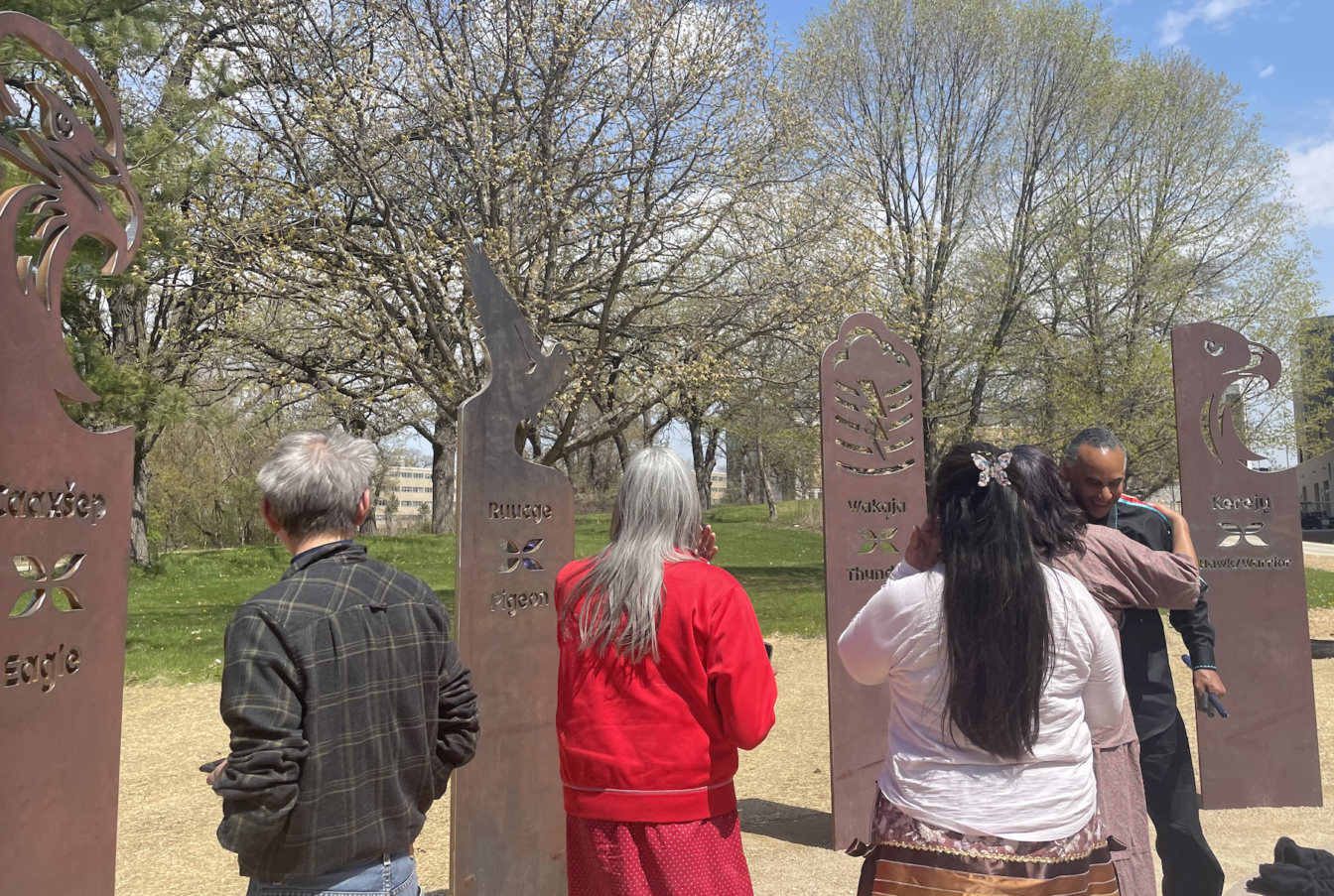Community members gathered outside of the Bakke Recreational Center Thursday to celebrate the opening of the Ho-Chunk Clan Circle, which features 12 metal figures honoring the clans of the Ho-Chunk Nation.
University of Wisconsin Chancellor Jennifer Mnookin addressed Ho-Chunk artist Ken Lewis, the creator of the Circle, during the event.
“What an honor to have your great work live in this beautiful place, a place where our UW-Madison community and our many visitors can relax and restore and learn in a place that has also been so important and so sacred,” Mnookin said.
The Ho-Chunk Nation is composed of 12 family groups, or clans, according to the Wisconsin First Nations website. Tribal Historic Preservation Officer Bill Quackenbush said finding visual depictions for some of the family groups, like the Thunder clan, was a struggle but came to fruition through Lewis’ years of expertise.
UW Director of Tribal Relations Carla Vigue said that the Ho-Chunk people have lived on this land for time immemorial and perfected skills now known as canoeing, snowshoeing, archery, lacrosse and more.
“The Ho-Chunk Clan Circle … was created as a reflection and educational space to honor this relationship and history,” Vigue said.
The event also included comments from Ho-Chunk district representative Sarah Lemieux and a performance from the Wisconsin Dells Singers.
Ho-Chunk Traditional Chief Clayton Winneshiek thanked UW for thinking of the Ho-Chunk Nation when building the Bakke, which was moved to preserve an ancient burial mound. Quackenbush noted that the naming of Dejope Residence Hall was another meaningful effort by UW to recognize the Ho-Chunk Nation.
Mnookin said that UW has begun a tribal consultation process to explore how to help make a college education more accessible for Indigenous students and create a stronger sense of belonging on campus.
“There’s certainly more work to do,” Mnookin said. “But our campus has grown more aware of the land that we occupy and has made strides in our efforts to be more respectful partners with the Ho-Chunk Nation.”



